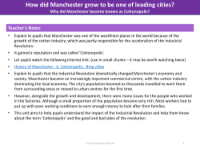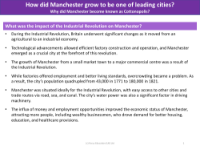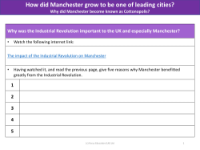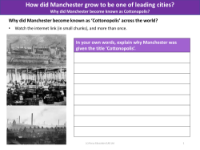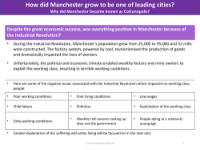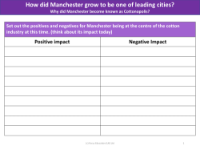Why did Manchester become known as Cottonpolis? - Presentation
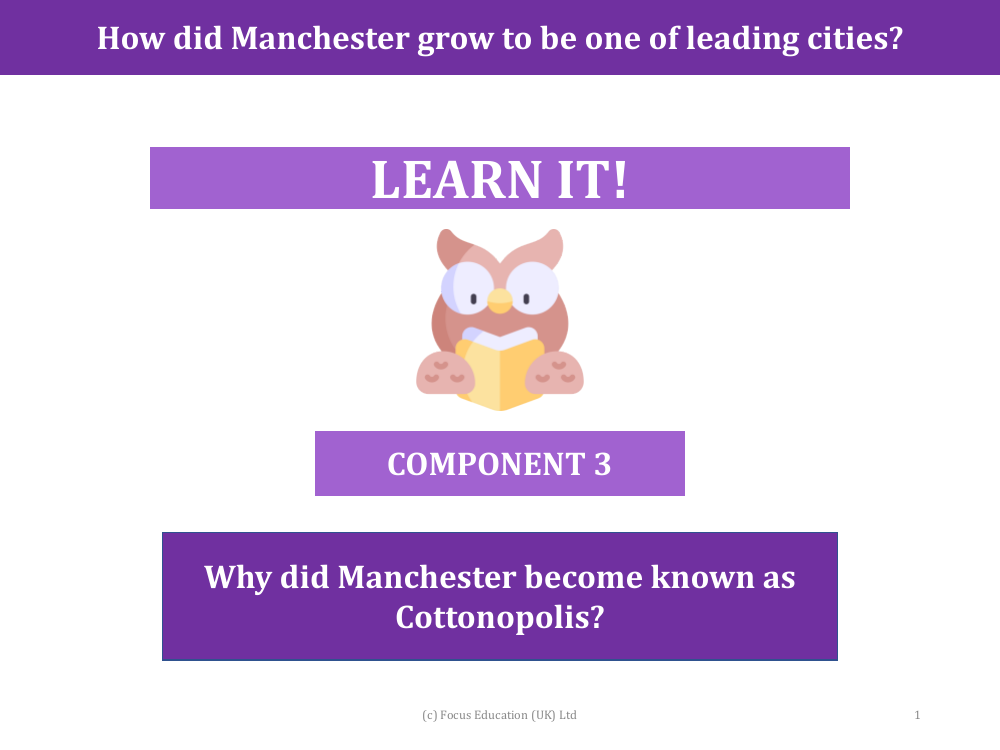
Manchester earned the moniker 'Cottonopolis' during the height of the Industrial Revolution, which saw the city transform into one of the world's wealthiest places, thanks to the booming cotton industry. This industry played a pivotal role in accelerating the Industrial Revolution. The city's economic and social landscape underwent dramatic changes, with the cotton industry becoming the dominant force in the local economy. As a result, Manchester's population surged, with people flocking to the city for work, both from nearby regions and those moving to urban areas for the first time. However, this period of growth and prosperity was not without its challenges, as many factory workers faced poor working conditions while trying to earn a living to support their families.
The Industrial Revolution marked a significant shift for Britain, moving from an agricultural society to an industrial powerhouse, and Manchester stood at the forefront of this transformation. The city's strategic location, with easy access to trade routes and water power for machinery, contributed to its rapid growth from a small market town to a major commercial centre. Between 1771 and 1821, Manchester's population expanded fourfold, from 43,000 to 180,000, leading to issues such as overcrowding. Despite the influx of wealth and the improvement of economic conditions, which attracted investors and prompted the development of better housing, education, and healthcare, the revolution also brought about negative consequences. These included exploitative working and living conditions, low wages, child labour, pollution, and the exploitation of the working class by wealthy mill owners who often created their own rules, bypassing government laws.
